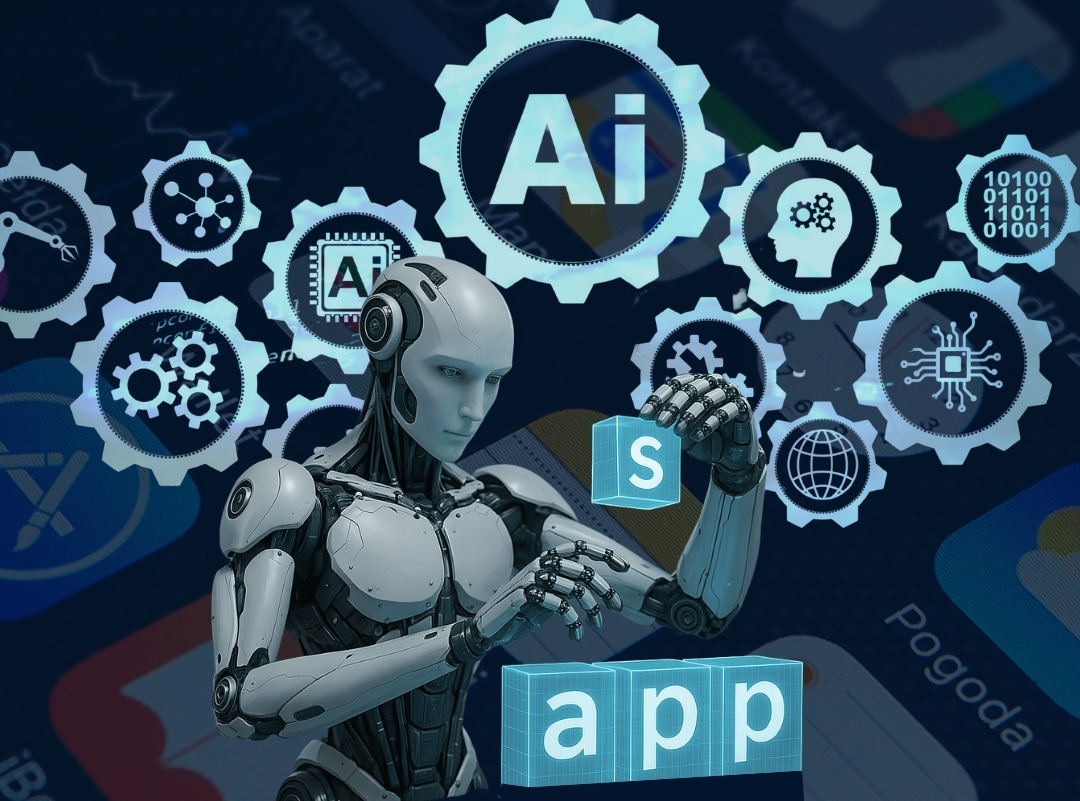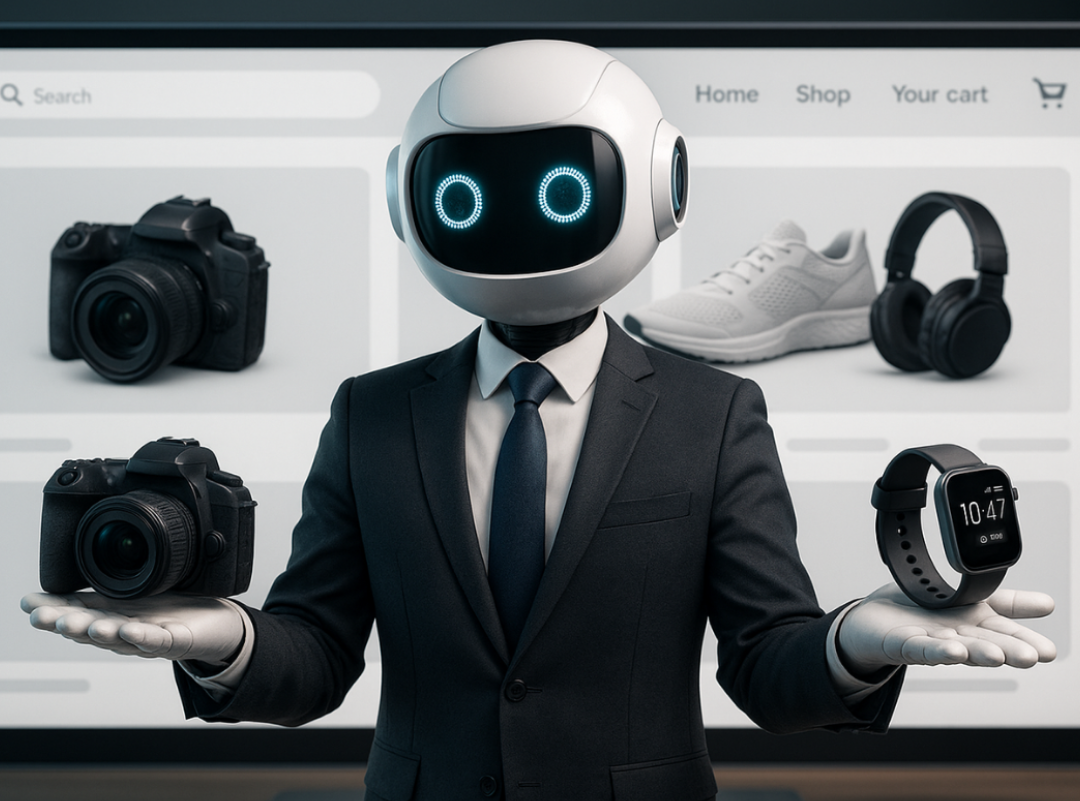Personalization isn’t just a trend; it’s the new digital expectation. With 71% of consumers expecting brands to deliver tailored experiences, businesses that fail to do so...
As technology continues to evolve, staying ahead of the competition requires embracing cutting-edge innovations. One of the most impactful technologies reshaping app developments is Artificial Intelligence (AI). By 2025, AI will be deeply integrated into every aspect of mobile app development, offering businesses the opportunity to enhance user experience, streamline processes, and create more efficient, secure applications.
But what exactly makes AI essential for staying competitive in the ever-changing app landscape?
The Role of AI in Transforming App Development
AI is no longer just a buzzword. It’s already revolutionizing how apps are designed, built, and used. From personalized experiences to predictive capabilities, AI is fundamentally changing the way we interact with mobile apps. Generative AI in app development is at the forefront of this shift, enabling smarter, creative, and more adaptive digital experiences. Let’s dive into why it’s becoming indispensable in the world of app development.
1. Advanced Personalization: Tailoring User Journeys with AI
Gone are the days of one-size-fits-all app experiences. AI-driven personalization allows apps to adapt and respond based on user preferences, behavior, and interactions. This level of customization creates a more engaging experience by offering content, features, and suggestions specifically suited to each user.
For instance, a health and fitness app might analyze a user’s progress and suggest customized workouts or nutrition plans based on their past behavior and preferences. By leveraging AI, apps can create dynamic, tailored experiences that keep users engaged and encourage return visits.
2. AI-Driven Automation: Accelerating Development Processes
Speed is a key factor in app development, and AI is an enabler of faster, more efficient processes. Through automated testing, bug detection, and code optimization, AI helps developers reduce the time required to create and maintain apps. AI can also automate routine tasks, such as data entry or content generation, which allows developers to focus on more complex features.
The result is faster delivery times, reduced human error, and an overall more efficient development lifecycle. Critical in industries where protecting innovation matters. Explore how product development strategies safeguard IP during outsourcing.
3. Predictive Analytics: Empowering Apps with Smarter Decisions
One of AI’s most powerful capabilities is its ability to make data-driven predictions. By analyzing patterns in user behaviour and historical data, AI can provide predictive insights that enable businesses to optimize their apps in real-time. Big Data and IoT are already transforming how companies operate and analyse information, forming the backbone of these predictive systems. These predictive capabilities help deliver highly relevant content, products, and features. Giving apps a powerful competitive advantage. Morgan Stanley reports that AI’s reasoning ability and model improvements will further enhance these predictive experiences.
AI’s ability to predict user behaviour is a game-changer. In fact, McKinsey reports that AI and predictive analytics can increase operational efficiency by up to 40% in industries like retail, finance, and healthcare. This makes predictive analytics a crucial tool for businesses looking to streamline their operations and enhance user engagement. Additionally, Gartner predicts that by 2025, 75% of customer service interactions will be powered by AI and predictive analytics, significantly improving customer experience and satisfaction.
For example, an e-commerce app using AI might predict a user’s preferences and suggest products they’re likely to buy based on past purchases. This predictive capability makes apps more intuitive, ensuring users are served content that’s highly relevant to them. According to a PwC study, 72% of business executives believe AI will be the most significant business advantage in the next few years, with predictive analytics being at the core of this transformation. The result? Increased engagement, user retention, and revenue.
4. Enhanced Security: AI’s Role in Protecting User Data
In an era where data security is critical, AI is playing a vital role in safeguarding mobile applications. By using machine learning algorithms to detect unusual activity, AI can identify potential security breaches and prevent fraud in real-time. AI systems continuously monitor user behaviour to detect patterns that indicate possible threats, providing an added layer of protection for both users and businesses.
For apps dealing with sensitive information, such as financial services or healthcare, AI-driven security measures are no longer optional. They’re essential.
5. Continuous App Optimization: Improving Performance
Over Time
AI enables continuous performance monitoring by analysing real-time data and making adjustments as needed. This allows developers to identify issues such as slow loading times or crashes before they affect the user experience. AI can also suggest optimizations for both the backend and frontend, improving app performance without requiring major updates.
With AI’s ability to learn from user interactions, apps can evolve and improve without needing constant manual intervention, ensuring long-term sustainability.
Challenges in Integrating AI into App Development
While the advantages of AI are clear, the path to integrating AI into app development comes with its own set of challenges. These challenges include:
- Data Privacy Concerns: AI relies on vast amounts of user data to learn and adapt, raising concerns around privacy and compliance with regulations such as GDPR.
- Development Costs: AI tools and platforms can be expensive to implement, especially for smaller businesses that may not have the resources to build AI models from scratch.
- Complex Integration: Integrating AI into an existing app infrastructure can be complex and may require significant adjustments to the app’s architecture.
Expert Solutions to Overcome AI Integration Challenges
While these challenges are real, there are practical solutions:
- Implementing Privacy-First Strategies: Businesses can ensure they comply with privacy regulations by adopting a data minimization approach, collecting only the necessary data and ensuring users have full transparency over their data usage.
- Leveraging Cloud-Based AI Solutions: To reduce development costs, businesses can use cloud-based AI services like Google AI or Microsoft Azure, which offer pre-built AI tools and models that can be integrated without the need for expensive infrastructure.
- Collaborating with AI Experts: By partnering with AI specialists, businesses can ensure that AI integration is seamless, efficient, and tailored to their specific needs.
Conclusion: AI is the Key to Future-Proofing Your App
As we move into 2025 and beyond, AI will continue to be the driving force behind innovation in app development, as experts like DockYard predict a surge in AI-assisted software trends in 2025 and beyond. From enhancing personalization and optimizing app performance to improving security, AI is transforming the way we interact with technology.
Businesses that embrace AI will be able to provide more intuitive, efficient, and secure apps—leading to greater user satisfaction and retention. For app developers and businesses, the future is clear: adopting AI is no longer a luxury; it’s a necessity.
Ready to transform your business operations?
Contact Alegia today to explore how IoT and Big Data can revolutionize your business.


